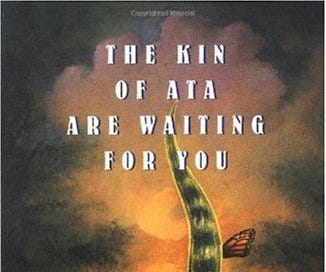What would it look like if we lived in a society that centered the wisdom of dreams?
This is the question that lies at the heart of the book The Kin of Ara Are Waiting for You by Dorothy Bryant, which I am currently reading. Published in 1971, it is a fictional/science fiction story about an island culture that values dreams to the extent that the whole culture is built around them, from the design of their village to their homes to their rituals and pace of life. It is a fascinating exploration of what a culture that not only values dreams, but centers centers them, could look like.
My personal verdict on the book is still out. I am about halfway through, and many details are still fuzzy, to the extent that I may have a different understanding of what is at the heart of the book when I finish it. I promise a follow-up review post when I do, but for now, the question alone feels worthy of exploration.
Let’s explore the question a little together:
A culture that values the wisdom of dreams…
…would value rest as much as (or perhaps more than) “productivity.”
…would structure life in ways that supported rest and dreaming (schedules aligned with the sun and darkness and seasonal rhythms, time in the middle of the day to rest…).
…would normalize talking about dreams on a daily basis (“How did you sleep? What did you dream?” alongside “How are you?”), and have rituals that support remembering dreams and sharing dreams.
…would honor dreams as a form of wisdom and way of knowing, alongside other ways of knowing such as intellectual, emotional, intuitive, somatic, etc. (if you value dreams, you would have to honor and value these other ways of knowing since they are all deeply connected).
What might you add to this list? What would this dream culture look like? And how do the cultures you are a part of or know of that do value the wisdom of dreams support and honor this wisdom?
In the end, I am not sure that centering the wisdom of dreams would be the optimal scenario (so far, I am not sure that I would want to live in Ata!). I think I would most like to see dreams as part of an ecology of knowledges1 that includes other ways of knowing (such as the intellectual, the affective, the intuitive, the embodied, etc), with all of these forms of knowledge valued and in dialogue with one another, adding to overall collective wisdom.
In any case, the book has been an enriching and provocative accompaniment so far. I will share more in another post soon!
Dear readers, we have two requests for input from you:
Do you have any books about dreams that we should add to our reading list?
Do you know of stories where people had dreams that inspired them to do great (or terrible) things? We have written a few posts about these kinds of stories - Descartes, Wangari Maathai, and Leymah Gbowee - and we are on the search for more such stories, as we are sure they exist! If you are are aware of any stories like these, please let us know (send a comment or reply to this email).
And if there is anything else you would like to share with us, please do!
Wishing you sweet dreams,
Stephanie
Stephanie Knox Steiner, PhD is an enchantress, mother-scholar, dreamworker, community weaver, and peace educator who currently lives and teaches at the University for Peace in Costa Rica. She has been writing down her dreams since she was a teenager, and studied community dreamwork as part of her doctoral studies in the Community, Liberation, Indigenous, and Ecopsychologies specialization at Pacifica Graduate Institute. She writes prolifically about enchantment, interbeing, and re-imagining education at her other Substack,
Boaventura de Sousa Santos




